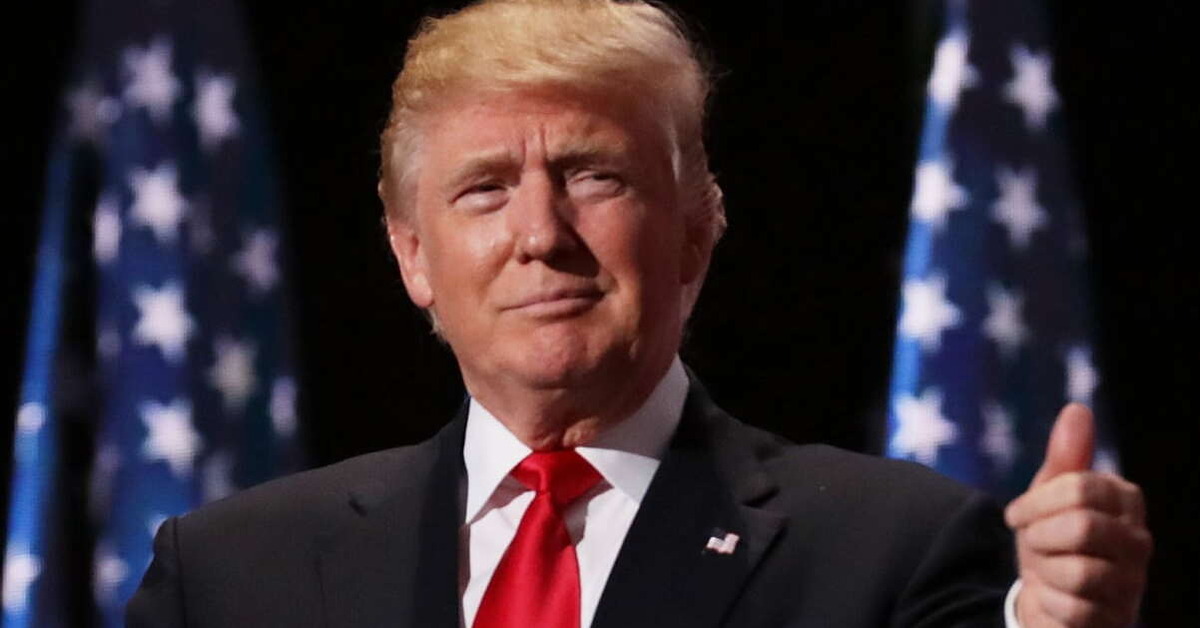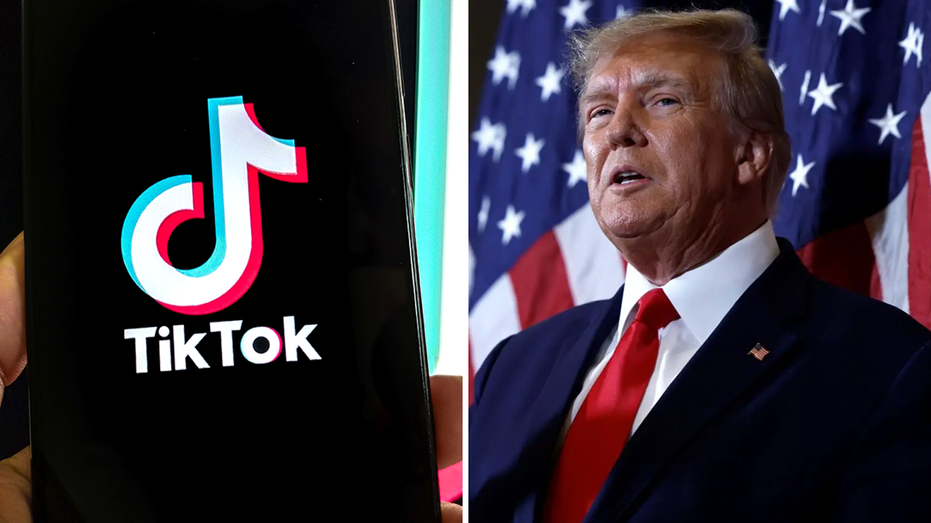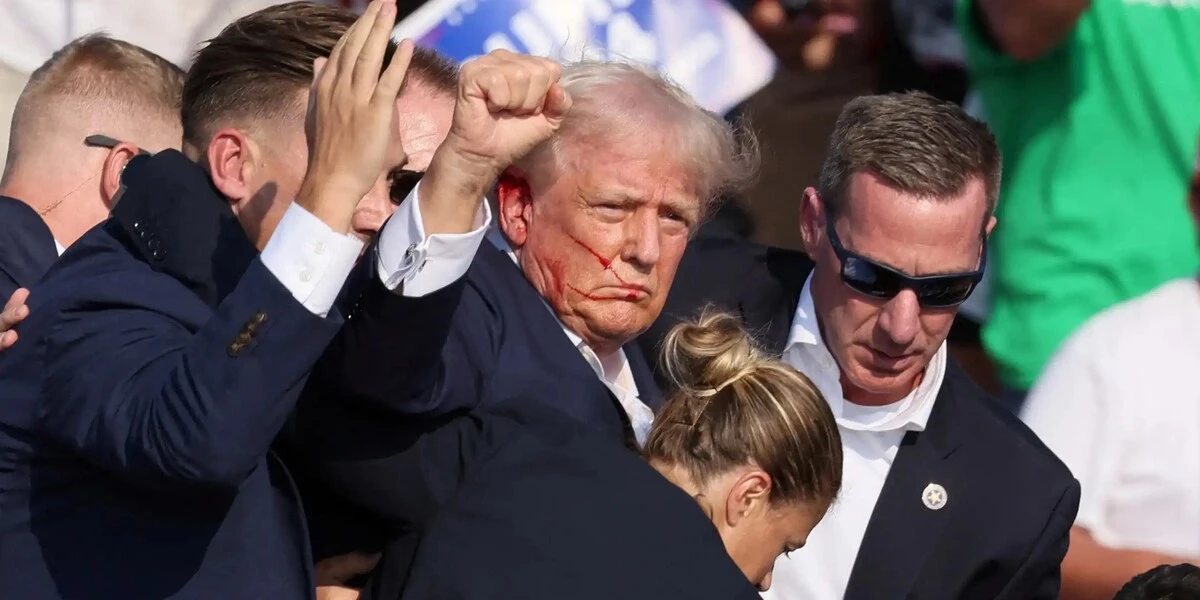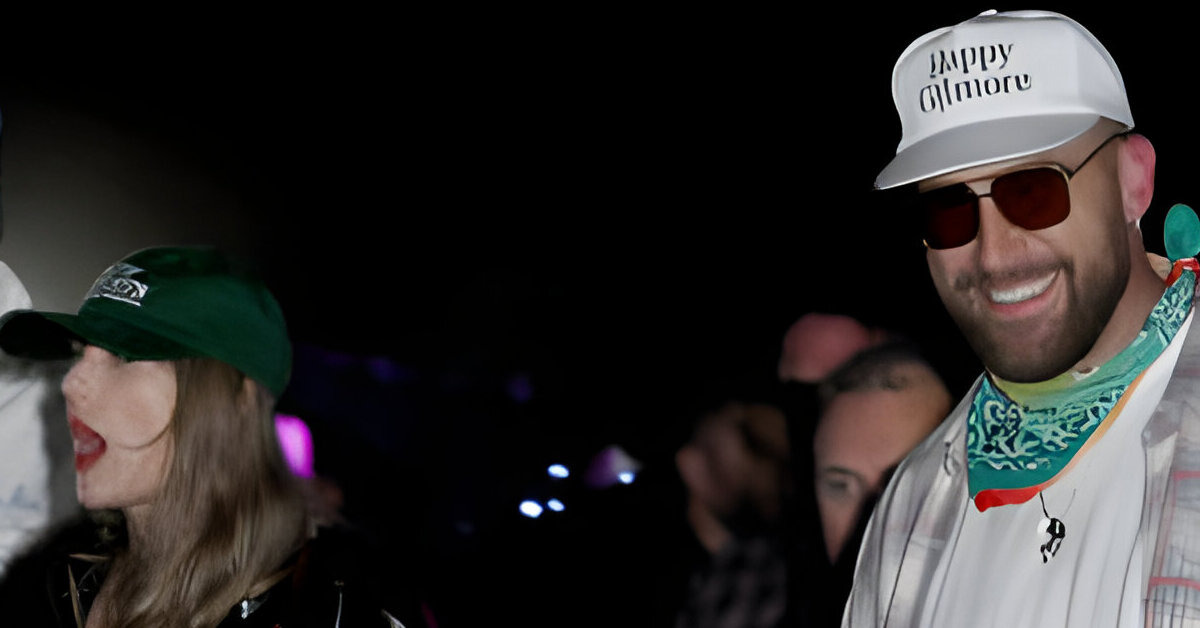“Trump’s Bold TikTok: UFC Video After 1 Ban Attempt”

“Trump’s Bold TikTok: UFC Video After 1 Ban Attempt”
Donald Trump, the former President of the United States and the presumptive Republican nominee for the upcoming presidential election, has joined TikTok. His debut on the popular social media platform was marked by a video posted on Saturday from a UFC (Ultimate Fighting Championship) event held in Newark, New Jersey. The video, which quickly garnered significant attention, features UFC president Dana White alongside Trump. In the video, Dana White enthusiastically announces, “The President is now on TikTok,” to which Trump responds with, “It’s my honor.” The video also includes various shots of Trump interacting with the crowd at the match, showcasing the former President’s ongoing popularity and engagement with the public.
Trump’s decision to join TikTok is particularly intriguing given the platform’s complicated political history, especially in relation to his previous stance on the app. During his presidency, Trump made headlines with his attempts to ban TikTok in the United States. In 2020, he issued an executive order citing national security concerns due to TikTok’s ownership by the Chinese company ByteDance. The Trump administration argued that the app could potentially be used by the Chinese government to collect data on American users, posing a significant security risk. This move was part of a broader strategy to address perceived threats from Chinese technology companies, which also included actions against other apps and tech firms.
However, Trump’s attempt to ban TikTok faced numerous legal challenges and was ultimately unsuccessful. The ban was blocked by multiple court rulings, which questioned the legal basis of the executive order and highlighted issues related to free speech and due process. The controversy surrounding TikTok became a focal point in the debate over the balance between national security and digital freedom, as well as the broader implications of regulating social media platforms.
Despite these challenges, TikTok has continued to grow in popularity, especially among younger users. According to research from the Pew Research Center, an increasing number of young people in the United States use TikTok as a source of news and information. The platform’s short-form video format has proven to be highly engaging, allowing users to quickly consume and share content. This has made TikTok an influential tool for communication, particularly among Generation Z and Millennials.
The political landscape surrounding TikTok shifted again with the Biden administration. In April 2023, President Joe Biden signed a law that required ByteDance to spin off TikTok into a separate, U.S.-based entity. This move was aimed at addressing the national security concerns that had been raised during Trump’s presidency while allowing the platform to continue operating in the United States. However, this law has also faced legal challenges and is currently being contested in court. The outcome of these legal battles will have significant implications for the future of TikTok and the regulation of foreign-owned technology companies in the U.S.
Trump’s entry onto TikTok is a notable development in this ongoing saga. It reflects his ability to adapt to new media landscapes and leverage different platforms to reach and engage with audiences. Trump’s presence on TikTok also underscores the app’s growing importance as a tool for political communication and campaign strategy. By joining TikTok, Trump is tapping into a platform that has a vast and active user base, potentially expanding his reach and influence, especially among younger voters.
The decision to join TikTok may also be part of a broader strategy to rejuvenate Trump’s public image and connect with a demographic that is increasingly important in modern political campaigns. Younger voters are becoming a more significant force in elections, and their preferences for media consumption differ markedly from older generations. By engaging with these voters on a platform they frequent, Trump is positioning himself to better address their concerns and interests.
Moreover, Trump’s move to TikTok could be seen as an effort to diversify his social media presence. Throughout his political career, Trump has been known for his prolific use of social media, particularly Twitter, where he amassed a large following and used the platform to communicate directly with the public. However, his relationship with social media has been contentious, with multiple platforms suspending or banning his accounts following the events of January 6, 2021. By joining TikTok, Trump is exploring new avenues for communication and ensuring that he maintains a direct line to his supporters and potential voters.
The video posted from the UFC event is emblematic of Trump’s approach to media and public engagement. It combines elements of entertainment, personal interaction, and political messaging, creating a multifaceted appeal that resonates with a broad audience. The choice of a UFC event as the backdrop for his TikTok debut is also significant. UFC events are known for their energetic and passionate fan base, and Trump’s appearance at such an event highlights his connection to sports and popular culture.
As the 2024 presidential election approaches, Trump’s presence on TikTok is likely to be a key component of his campaign strategy. The platform’s ability to rapidly disseminate content and generate viral moments provides a unique advantage for political communication. Trump’s team will likely use TikTok to share campaign messages, highlight events, and respond to current issues in real-time, leveraging the platform’s interactive features to engage with voters.
Trump’s decision to join TikTok is particularly intriguing given the platform’s complicated political history, especially in relation to his previous stance on the app. During his presidency, Trump made headlines with his attempts to ban TikTok in the United States. In 2020, he issued an executive order citing national security concerns due to TikTok’s ownership by the Chinese company ByteDance.
The Trump administration argued that the app could potentially be used by the Chinese government to collect data on American users, posing a significant security risk. This move was part of a broader strategy to address perceived threats from Chinese technology companies, which also included actions against other apps and tech firms.
Trump’s executive order specifically mandated that ByteDance sell or spin off its U.S. assets within 90 days. The aim was to ensure that the data of American TikTok users would not be accessible to the Chinese government. This directive, however, faced numerous legal challenges and did not come to fruition. Courts blocked the order, questioning the legal basis and raising concerns about free speech and due process. The controversy surrounding TikTok became a focal point in the debate over the balance between national security and digital freedom, as well as the broader implications of regulating social media platforms.
Read More: Donald Trump calls judge ‘devil,’ denies affair
Despite these challenges, TikTok has continued to grow in popularity, especially among younger users. According to research from the Pew Research Center, an increasing number of young people in the United States use TikTok as a source of news and information. The platform’s short-form video format has proven to be highly engaging, allowing users to quickly consume and share content. This has made TikTok an influential tool for communication, particularly among Generation Z and Millennials.
The political landscape surrounding TikTok shifted again with the Biden administration. In April 2023, President Joe Biden signed a law that required ByteDance to sell its U.S. operations within the year or face a nationwide ban. This move aimed to address the national security concerns that had been raised during Trump’s presidency while allowing the platform to continue operating in the United States. The law received overwhelming support in Congress, reflecting bipartisan agreement on the need to mitigate potential security risks posed by foreign-owned technology companies.
However, this law has also faced legal challenges and is currently being contested in court. The outcome of these legal battles will have significant implications for the future of TikTok and the regulation of foreign-owned technology companies in the U.S.
Trump’s entry onto TikTok is a notable development in this ongoing saga. It reflects his ability to adapt to new media landscapes and leverage different platforms to reach and engage with audiences. Trump’s presence on TikTok also underscores the app’s growing importance as a tool for political communication and campaign strategy. By joining TikTok, Trump is tapping into a platform that has a vast and active user base, potentially expanding his reach and influence, especially among younger voters.
The decision to join TikTok may also be part of a broader strategy to rejuvenate Trump’s public image and connect with a demographic that is increasingly important in modern political campaigns. Younger voters are becoming a more significant force in elections, and their preferences for media consumption differ markedly from older generations. By engaging with these voters on a platform they frequent, Trump is positioning himself to better address their concerns and interests.
Moreover, Trump’s move to TikTok could be seen as an effort to diversify his social media presence. Throughout his political career, Trump has been known for his prolific use of social media, particularly Twitter, where he amassed a large following and used the platform to communicate directly with the public. However, his relationship with social media has been contentious, with multiple platforms suspending or banning his accounts following the events of January 6, 2021. By joining TikTok, Trump is exploring new avenues for communication and ensuring that he maintains a direct line to his supporters and potential voters.
The video posted from the UFC event is emblematic of Trump’s approach to media and public engagement. It combines elements of entertainment, personal interaction, and political messaging, creating a multifaceted appeal that resonates with a broad audience. The choice of a UFC event as the backdrop for his TikTok debut is also significant. UFC events are known for their energetic and passionate fan base, and Trump’s appearance at such an event highlights his connection to sports and popular culture.
As the 2024 presidential election approaches, Trump’s presence on TikTok is likely to be a key component of his campaign strategy. The platform’s ability to rapidly disseminate content and generate viral moments provides a unique advantage for political communication. Trump’s team will likely use TikTok to share campaign messages, highlight events, and respond to current issues in real-time, leveraging the platform’s interactive features to engage with voters.
In conclusion, Donald Trump’s decision to join TikTok marks a significant development in both his political strategy and the broader narrative surrounding the platform. Despite the political controversies and legal challenges that have defined TikTok’s presence in the U.S., the app continues to be a major player in the social media landscape. Trump’s entry onto TikTok demonstrates his adaptability and understanding of modern media dynamics, positioning him to effectively engage with a new generation of voters. As the legal and political battles over TikTok continue, the platform’s role in shaping political discourse and influencing public opinion will remain a critical area of interest and scrutiny.




